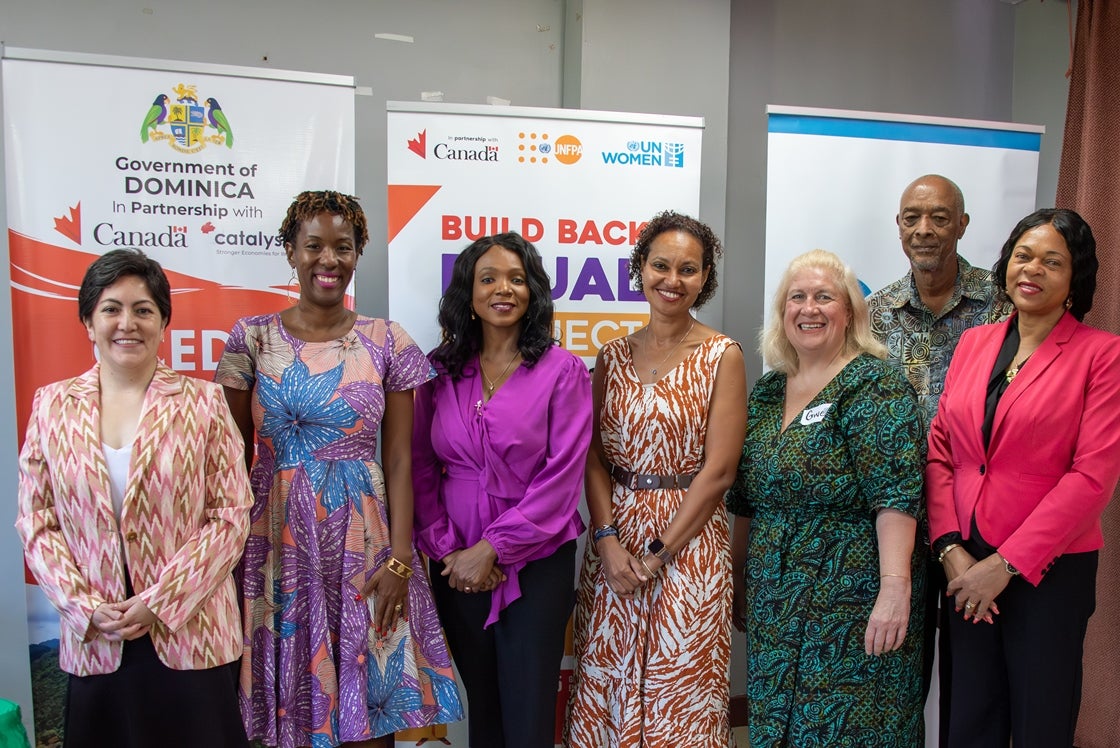"Let’s put an end to the women blaming headlines in incidences of GBV and highlight the root causes of the violence when it occurs"
Date:
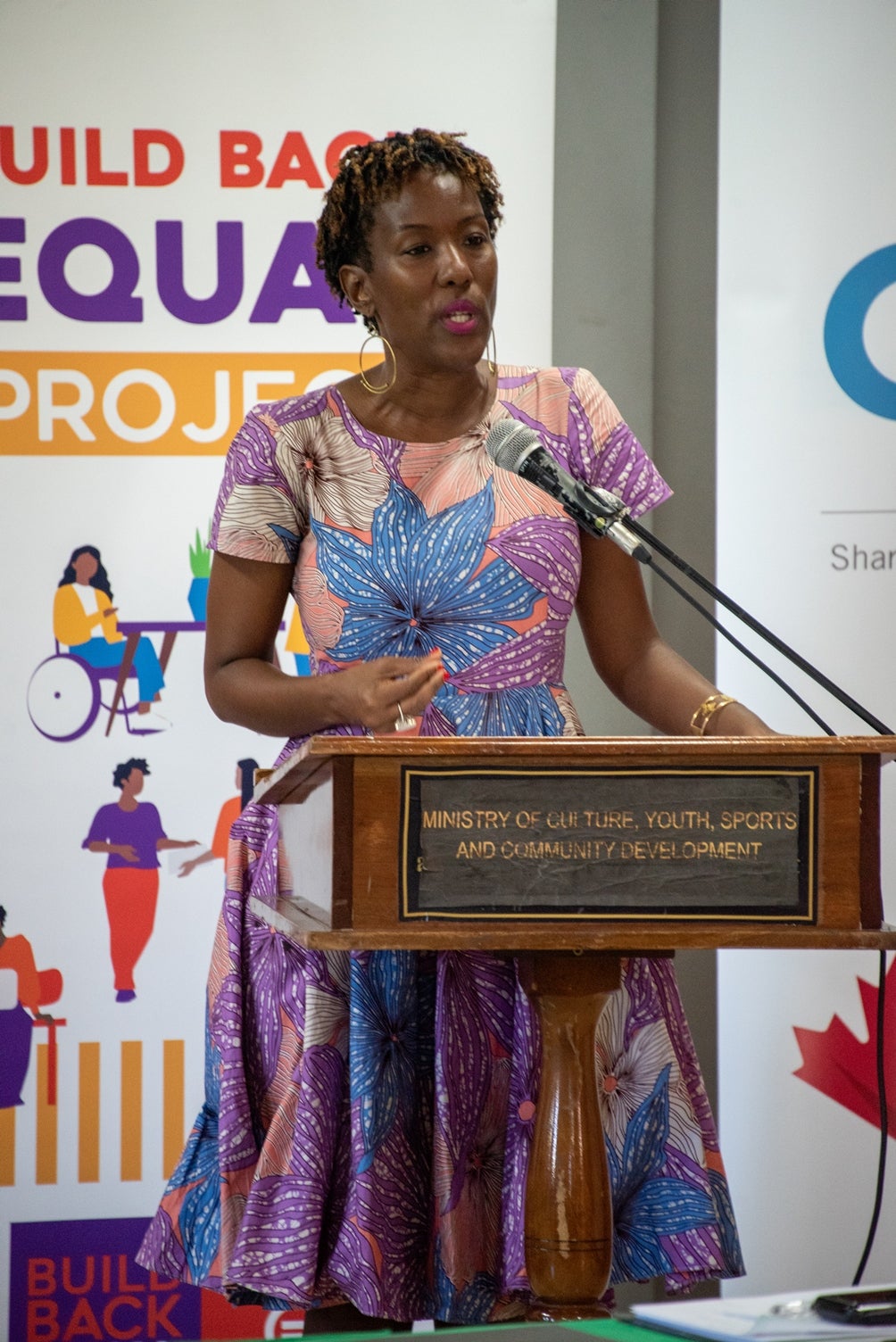
Tonni Brodber, Representative, UN Women Multi-Country Office – Caribbean, delivering opening remarks at the start of the workshop
Roseau Dominica, 07 March 2024: Tonni Brodber, Representative, UN Women Multi-Country Office – Caribbean has stressed that reporting on gender-based violence should not be buying into tropes of gender stereotypes that paint women in the worst versions of Eve and Delilah. She further told communicators there is need to ensure a multiplicity of stories are told and in a way that people can understand the root cause of the issues.
Ms. Brodber was addressing the start of a gender sensitive communication workshop funded by the Global Affairs Canada Build Back Equal Project in partnership with the Canada-CARICOM Expert Deployment Mechanism implemented by Catalyse+ with facilitation by Canada’s CUSO International.
The UN Women Representative also highlighted to the workshop participants, that there are far too many headlines referring to an adult man and his lover, when referring to a teenager.
“A 13-year-old girl should not be reported as an equal lover to a 30- or 27-year-old man. Our legislation says they are not equal”. She added that it is critical ‘to better understand what we mean when we speak about Gender Equality. We are talking about the roles that women play as mothers, as daughters, caretaking for our families…and to explore how can we better support women in all of their roles and men as they engage in their community activities and also take on more responsibilities of care.”
Ms. Brodber also said if the “Why” is not communicated when doing the “What”, no one will care and the work will not be sustainable. The UN Women Representative said understanding what a comprehensive approach to resilience, means understanding that a comprehensive approach to economic empowerment is needed and this is what the Build Back Equal Project represents; where resilience is a reality because it is embedded before any hazards occurs.
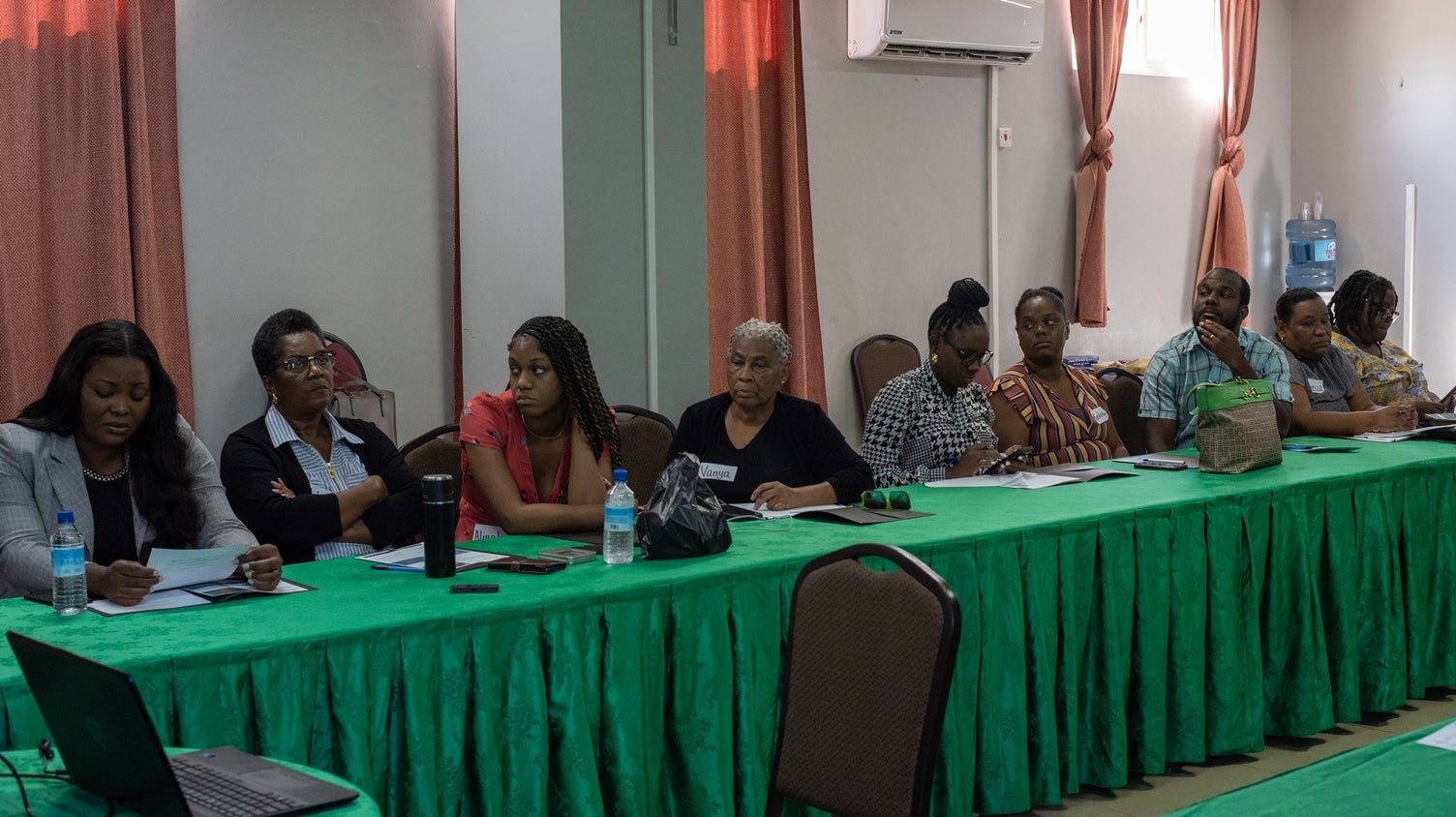
Participants at the Gender Sensitive Communication Workshop
The Build Back Equal Project is funded by Global Affairs Canada and implemented with the Governments of the four beneficiary Caribbean countries: Dominica, Grenada, Saint Lucia and Saint Vincent and the Grenadines, with UN Women as lead agency and UNFPA. On the eve of International Women’s Day, Ms. Brodber stressed Canada’s investments in this region have been in place since the 1980s and UN Women is deeply appreciative of the investment.
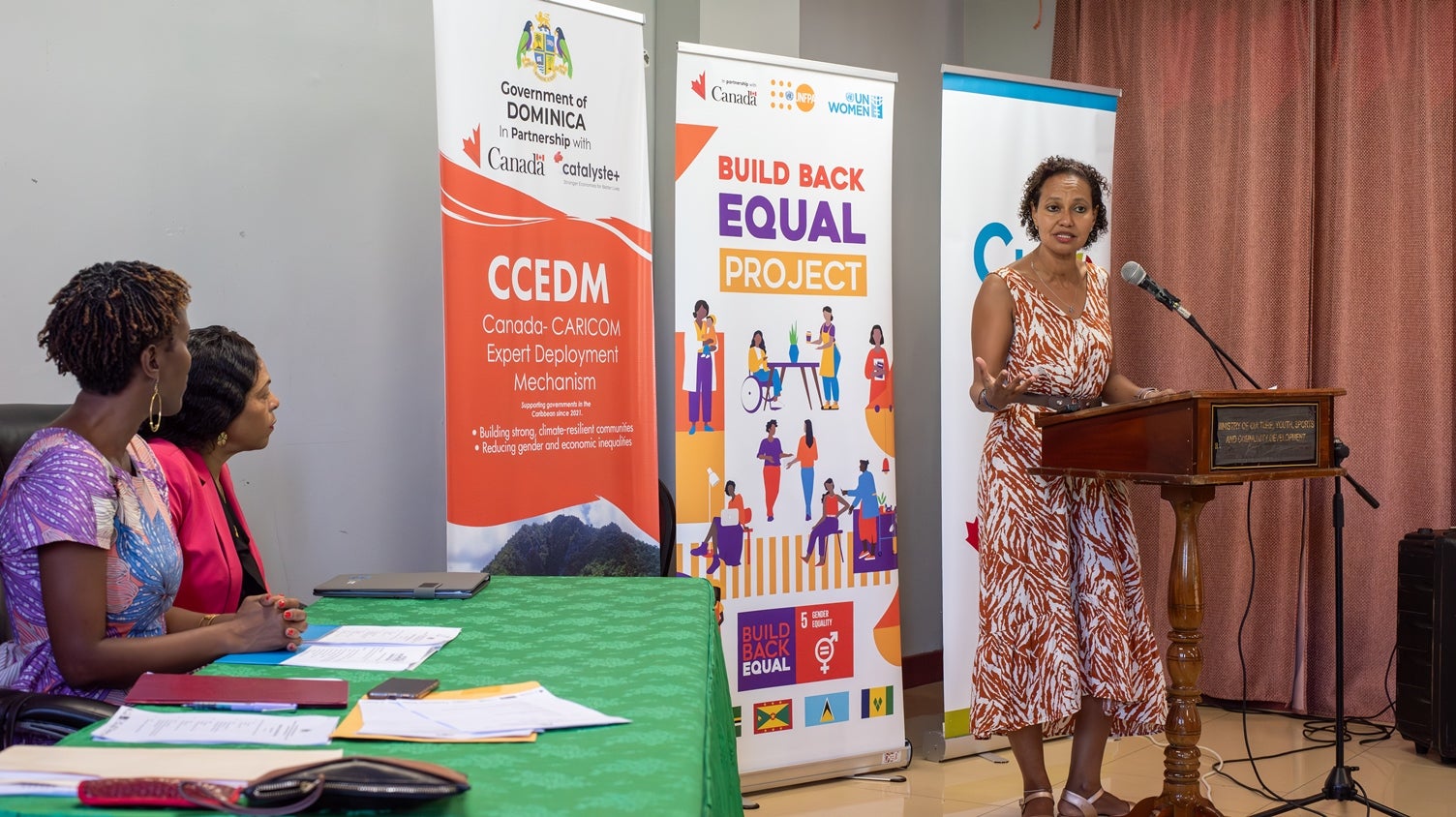
Abebech Assefa, Canada’s Head of Cooperation for the Eastern Caribbean, speaking on the BBE Project
Canada’s Head of Cooperation for the Eastern Caribbean Abebech Assefa said:
“The Build Back Equal Initiative, implemented by UN Women and UNFPA, is designed to help address some of the key barriers that are preventing women from fully achieving their economic potential. This involves addressing critical access to business training and financing for micro and small women led businesses; addressing un-paid care leave; strengthening access to sexual and reproductive health services etc.”
The Global Affairs Canada official also said achieving gender equality requires a concerted effort from everyone and a multi-pronged approach.
“One component of this approach is ensuring that we build our capacities to recognize gender biases and to design appropriate responses to address those biases.
When working on a particular issue/sector, you hear us talk about achieving gender equality and immediately focus on women and girls. It is not because we believe that gender equality is only about women and girls. It is because for the issues that we are trying to tackle, the analyses have shown that women and girls are lagging and are not having access to the same opportunities or resources as their male counterparts,” Ms. Assefa said.
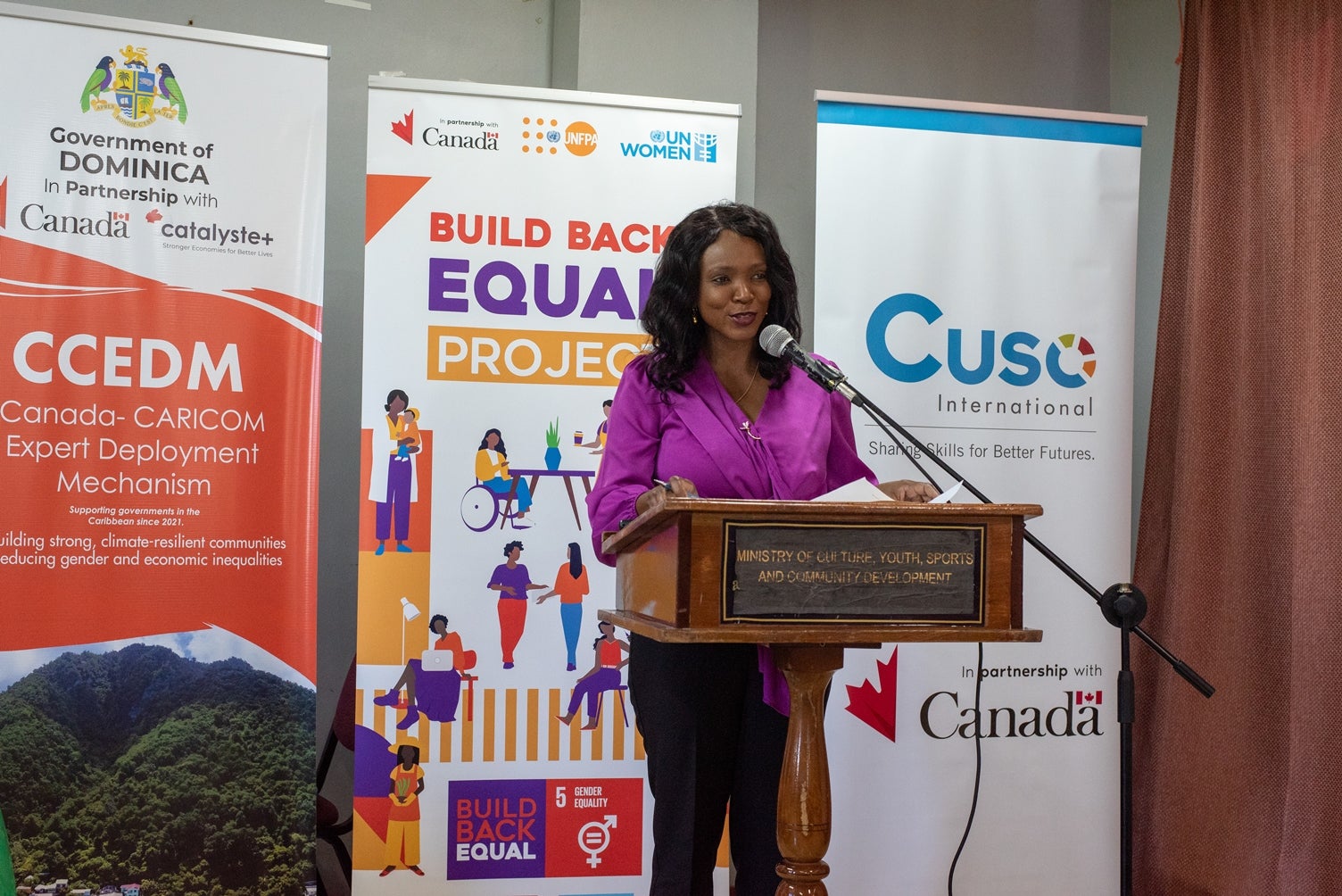
Honourable Dr. Cassandra Williams, Minister of State in the Ministry of Health, Wellness and Social Services
The Honourable Dr. Cassandra Williams, Minister of State in the Ministry of Health, Wellness and Social Services, with special responsibility for Gender, told the participants that Parliament had last year approved a suite of family model bills aimed at strengthening family structures and establishing mechanisms to support vulnerable individuals within society.
The Minister added: “These legislative measures show our dedication to promoting the well-being and safety of all citizens, particularly those facing domestic violence and other forms of gender-based violence.
This gender-sensitivity communication training serves as a continuation of our commitment to implementing the laws approved earlier and ensuring that reporting is conducted in a manner that is not only gender-friendly but also aligned with the spirit of the amended laws, particularly the Domestic Violence Act”, the Minister added.
